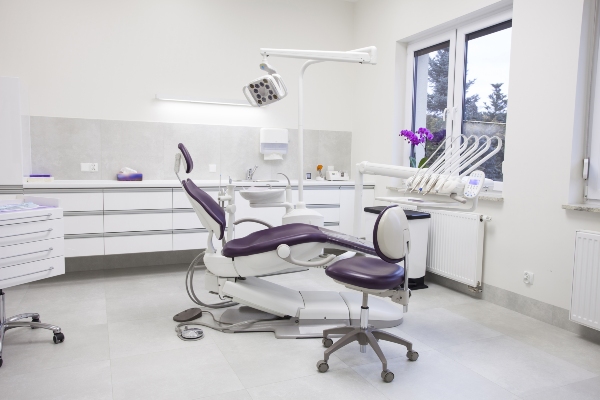What Happens After Dental Implant Placement?

If one of your teeth has fallen out, a dental implant is one of the options you get to choose from when it comes to tooth replacement. These devices are placed directly into the patient's jaw, and it serves as an artificial tooth root. It also anchors the crown that is placed on it to serve as a replacement for the lost tooth.
Life after getting a dental implant
Now that you are past the first stage of getting implants, you might be wondering what goes on afterward. This article will explore that and provide some tips on speeding up the recovery process.
1. Arrange for transportation home
Anesthetics are used during implant installation, and this can lead to a loss of coordination and blurry vision for up to 24 hours after the operation. Patients are advised to arrange for a ride home since it will not be safe for them to operate machinery or vehicles during this period.
2. There will be some bleeding
Blood coming out of the site of the implant surgery is common for the first 72 hours. The bleeding can be reduced by placing gauze over the site and biting down on it. Patients should keep spitting to a minimum since this aggravates the surgical site and promotes bleeding.
Those who get an implant placed in their upper jaw might deal with some blood coming from their nose.
3. Wait an hour before eating
Patients should wait at least an hour after the procedure before eating or drinking anything. It is best to stick to soft foods for the first 24 hours. Hot meals and drinks should be avoided for at least a few hours after the treatments. Straws should be avoided for the first 24 hours after dental implant installation. The suction forces created while using a straw can aggravate the surgical site, preventing it from healing properly.
4. The anesthetic wears off after a few hours
The pain and discomfort a patient experiences after implant surgery typically depends on how extensive the surgery was. The anesthetic used usually begins to wear off within a few hours, and the dentist will prescribe pain medication if they expect a high enough level of discomfort.
For most patients, over-the-counter painkillers are enough to get them through the recovery process.
5. There might be some swelling
Some patients experience some inflammation after getting implants inserted, but this should not last longer than three to four days. This facial swelling can make it more difficult for the patient to open their mouth or swallow.
The swelling can be minimized by applying an ice pack to the area for 15 minutes at a time. This should be repeated a few times over the course of a day.
6. Antibiotics are typically prescribed
Patients are usually prescribed antibiotics after implant installation. This is done to prevent infection of the surgical site. Patients are advised to take their medicines as prescribed and to finish the dosage.
Come explore implants with us
Thinking about implants in the New York area? Stop by our office to learn more about this tooth replacement option and what goes on after implant installation.
Let's get started…
Request an appointment here: https://www.newyorkdentaloffice.com or call New York Dental Office at (212) 548-3261 for an appointment in our New York office.
Check out what others are saying about our services on Yelp: Read our Yelp reviews.
Recent Posts
Scheduling an initial visit to a dental practice marks the first step toward maintaining optimal oral health. Proper preparation for this appointment ensures a seamless experience, allowing the dental team to provide the highest-quality care possible. Understanding what documents and information to bring facilitates efficient care, reduces stress, and helps patients feel comfortable and informed…
Dental practices provide essential oral health services to patients of all ages. These services range from preventive and restorative treatments to cosmetic and emergency procedures. Understanding the types of care available at a general dental practice can help patients make informed decisions about their oral and overall health.Preventive care is a cornerstone of dental practice…
Regular visits to a dental practice provide essential care for achieving and maintaining optimal oral health throughout a patient’s lifetime. Beyond treating immediate dental concerns, a dental practice emphasizes preventive care, patient education, and tailored treatments designed to safeguard oral health for years to come. Understanding the role of professional dental care underscores the importance…
Endodontics is a branch of dentistry dedicated to saving teeth by treating problems inside the tooth. It focuses on the health of the tooth's pulp and roots, essential to your smile's overall strength and function. Endodontics could be the key to relieving discomfort and preserving your natural teeth if you are experiencing tooth pain or…



